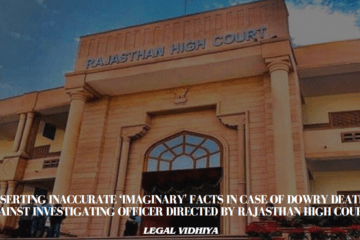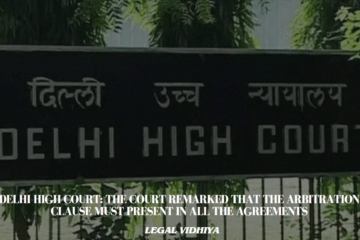
In a significant move on January 19, 2020, the Supreme Court issued directives to all High Courts, urging them to implement necessary “corrections” within their systems. The aim is to ensure that details and orders of bail applications, whether pending or decided, are explicitly and mandatorily outlined in fresh pleas.
The bench, comprising Justices Vikram Nath and Rajesh Bindal, emphasized the need for bail application sequencing to be clearly visible, indicating whether it is the first, second, or subsequent attempt. This clarity, the court argued, facilitates a more effective evaluation of arguments.
The court further mandated the inclusion of a system-generated report on decided or pending bail applications related to the specific crime case. This directive extends to cases involving private complaints, where unique case numbers are assigned, even in the absence of FIR numbers.
Additionally, the bench emphasized the responsibility of Investigating Officers and officers assisting the State Counsel to inform the court about any orders pertaining to various bail applications or proceedings in the same crime case.
Notably, the Supreme Court ordered the transmission of its directive to the Registrars General of all High Courts. This is intended for the Chief Justices to review and correct their systems, ensuring uniformity across the legal landscape.
The directives arose during the adjudication of a criminal appeal filed by Kusha Duruka seeking bail in a Narcotic Drugs and Psychotropic Substances Act case. The court expressed concern over attempts to compromise the administration of justice and highlighted a specific case involving the recovery of 23.8 kg of Ganja.
In this case, the appellant had initially been denied bail by the High Court. However, during the Supreme Court hearing, it came to light that the appellant had obtained bail from the High Court on October 11, 2023, a fact not adequately disclosed in the order.
Expressing disapproval of such practices, the court dismissed the petition as infructuous, imposing a cost of Rs 10,000. While refraining from canceling the bail, the court emphasized that such a drastic step could be considered based on the conduct of the parties, as established in its precedent-setting decision in ‘Chandra Shashi Vs Anil Kumar Verma (1995).’
CASE NAME: KUSHA DURUKA V. THE STATE OF ODISHA
NAME: GAYATHRI MANOJ, BBA, LLB(HONS), PRESIDENCY UNIVERSITY, BANGALORE, INTERN UNDER LEGAL VIDHIYA.
Disclaimer: The materials provided herein are intended solely for informational purposes. Accessing or using the site or the materials does not establish an attorney-client relationship. The information presented on this site is not to be construed as legal or professional advice, and it should not be relied upon for such purposes or used as a substitute for advice from a licensed attorney in your state. Additionally, the viewpoint presented by the author is of a personal nature.




0 Comments